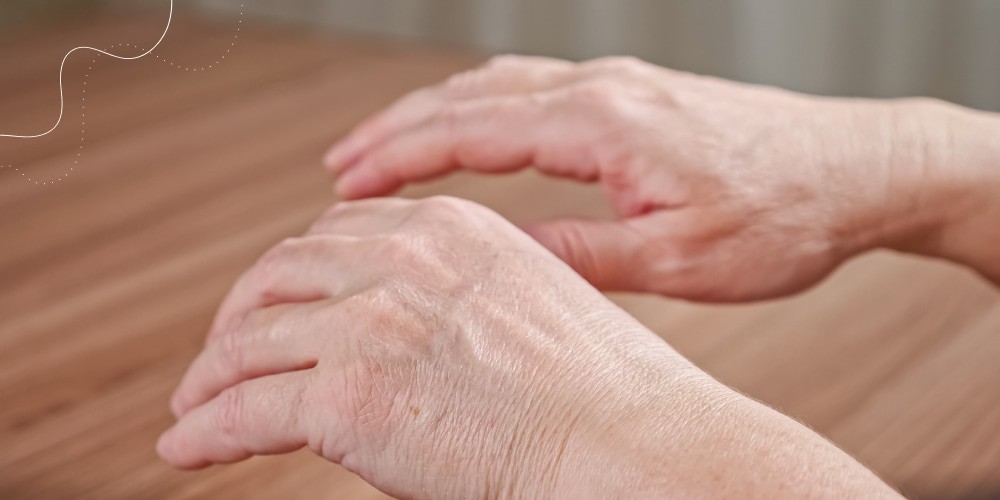Some neurological diseases are inherited. Among the most common inherited neurological disorders are the following:
- Alzheimer’s disease;
- Epilepsy;
- Huntington’s disease;
- Dyslexia;
- Parkinson’s disease;
- Tourette’s syndrome;
- Amyotrophic lateral sclerosis.
A lot of these genetic conditions are severe for patients. Some of them gradually lead to the loss of the ability to perform the necessary things independently. Also, they can lead to cognitive impairment and the loss of the ability to think adequately.
The fact that these diseases are genetic does not make them mandatory in human life. Note that lifestyle and environment also play a role in the occurrence of these diseases.
To prevent these diseases, maintain a healthy lifestyle and avoid stress.
In this article, we will take a closer look at some neurogenetic disorders.
Alzheimer’s Disease
Alzheimer’s disease is a progressive neurogenetic disease. In this disease, the patient’s brain shrinks, and the cells die. This disease often causes dementia – a permanent decline in cognitive abilities. Approximately 5.8 million people over 65 in the USA have Alzheimer’s disease.
Symptoms of Alzheimer’s disease include the following:
- Memory impairment;
- Asking the same questions;
- Loss of things;
- Forgetfulness of names;
- Poor orientation in space;
- Change in personality and behavior;
- Apathy;
- Depression;
- Unwillingness to communicate with people;
- Mood swings;
- Distrust of others;
- Irritability and aggressiveness;
- Deterioration in the quality of sleep;
- Difficulties with swallowing and chewing.
Among the causes of Alzheimer’s disease there is a combination of genetic factors, lifestyle, and environmental factors.
Drugs can improve the patient’s condition and slow the progression of symptoms. Prompt medical attention can reduce the impact of symptoms on a patient’s life. Unfortunately, at the moment, there is no cure for it. In the later stages of Alzheimer’s disease, patients may suffer from dehydration, starvation, or infections. These problems often lead to death. Therefore, patients with Alzheimer’s disease need the care and support of loved ones.
Epilepsy
Epilepsy is one of the next genetic illnesses. It is a disorder of the central nervous system. In this disorder, brain activity becomes abnormal, causing seizures or periods of unusual behavior and loss of consciousness.
Potentially, anyone can experience epilepsy. This disorder affects both men and women of various ages.
Each patient may have individual symptoms of epilepsy. Some may just stare blankly at the wall. Other patients fall to the ground and start twitching their arms and legs. If you have experienced one seizure, this does not mean you have epilepsy. Making this diagnosis requires at least two attacks without provoking them. Also, there should not be a break of more than 24 hours between these attacks.
The cause of epilepsy is abnormal brain activity. Therefore, seizures can affect any process that coordinates the human brain. Symptoms can vary, but most often, patients may experience the following symptoms:
- Temporary confusion;
- Muscle tension;
- Uncontrollable spasms of extremities;
- Loss of consciousness;
- Fear or anxiety.
Epilepsy is usually treated with drugs or surgery. Some patients have to deal with this disorder for the rest of their lives. Another part of patients successfully get rid of epilepsy and live a full life.
Huntington’s Disease
Huntington’s disease is one of the rare hereditary genetic problems. It causes the destruction of nerve cells in the brain. This disease significantly affects a person’s functionality and leads to several disorders associated with behavior, thinking, and physical activity.
Symptoms of this disease can appear at any time in life. However, as a rule, they often appear at 30-40 years old. In some cases, this disease develops before the age of 20. In this case, doctors call it “juvenile Huntington’s disease.” If a patient at a young age faces this disease, his symptoms may differ. In this case, the disease can proceed more quickly.
Symptoms of Huntington’s disease may include:
- Involuntary twitches;
- Muscle stiffness or contracture;
- Slow or unusual eye movements;
- Gait, posture, and balance disorders;
- Difficulty speaking or swallowing;
- Voluntary movement disorders;
- Cognitive disorders;
- Difficulty organizing, prioritizing or focusing on tasks;
- Lack of flexibility or a tendency to dwell on thoughts;
- Lack of control over impulses;
- Slowness in thought processing;
- Difficulties with processing the received information;
- Feeling irritable, sad, or numb;
- Social isolation;
- Insomnia;
- Fatigue and loss of energy;
- Frequent thoughts of death, dying, or suicide;
- Tight and rigid muscles that affect gait;
- Tremor or slight involuntary movements;
- Frequent falls or clumsiness;
- Convulsions.
A number of drugs can be used to treat Huntington’s disease. But the treatment does little to prevent physical, mental, and behavioral deterioration.
Dyslexia
Dyslexia is also related to genetic defects. It’s a learning disorder. It includes reading difficulties due to problems identifying speech sounds. Also, this is due to a misunderstanding of how they correlate letters and words. This disorder is also called reading disorder. It is due to individual differences in the brain’s areas responsible for processing speech.
This disorder is not associated with problems of intelligence or vision. Most children with this disorder can do well in school in parallel tutoring or a special program. Also, for such children, necessary support in the family.
As a rule, dyslexia is diagnosed when the child has started school. However, signs of dyslexia may be noticeable earlier. So, the most common symptoms of dyslexia can be:
- Late talk;
- Slow learning of new words;
- Problems with the correct formation of words;
- Problems remembering information;
- Difficult bad reading;
- Difficulty answering questions;
- Difficult finding differences and similarities in letters;
- Inability to voice the pronunciation of an unfamiliar word.
There is no specific treatment for dyslexia. But the task of parents is to detect reading problems in a child in time. They should consult a doctor and start solving this problem as early as possible. Sometimes such a problem is diagnosed in adulthood because the patient did not go to the doctor.
Parkinson’s Disease
Parkinson’s disease is a progressive genetic illness that affects the nervous system. It affects the human nervous system and some parts of the body that control the nerves. Symptoms of this disease in patients appear rather slowly. Early in the disease, patients may experience trembling in one hand. It can then progress to tremors, stiffness, and slowness of movement.
At the onset of Parkinson’s disease, patients may have mild facial expressions. The patient’s arms may then stop swinging while walking. The patient’s speech becomes incomprehensible. As time passes, the symptoms of Parkinson’s disease begin to worsen.
Symptoms of Parkinson’s disease:
- Tremor;
- Slow movements;
- Muscle tension;
- Violation of posture;
- Loss of balance;
- Loss of automatic movements;
- Deterioration of speech;
- Difficulties in handwriting.
At this moment, Parkinson’s disease is incurable. However, drugs can help alleviate the patient’s condition. In some situations, the doctor may recommend surgery. It can help to correct the functioning of certain brain areas.
Tourette’s Syndrome
Tourette syndrome is also related to genetic defects. This disorder consists of repetitive movements or unwanted sounds. It is difficult for a patient with this disorder to control these symptoms. For example, a person with Tourette’s syndrome may repeatedly blink, twitch their shoulders, or yell swear words.
Most often, the symptoms of this disorder appear at the age of six. In men, this syndrome occurs four times more often than in women.
Among the symptoms of Tourette’s syndrome, doctors can note the tics. They can be in the form of twitching of the eyes, eyebrows, and hands. Another form of these tics is vocal. A patient suffering from this syndrome may involuntarily shout out words or insults.
Currently, there is no cure for Tourette’s syndrome. However, some medications can alleviate the patient’s condition. In addition, if the patient is not too worried about the symptoms, he may not treat this syndrome. The symptoms of Tourette’s syndrome subside after adolescence.
Amyotrophic Lateral Sclerosis
Amyotrophic lateral sclerosis is also called ALS. It is one of the progressive genetic conditions of the nervous system. It affects the nerve cells of the brain and spinal cord. The consequence of this disease is loss of muscle control.
Studies do not say the exact cause of the occurrence of this disease. There are known cases of its transmission by inheritance.
This disease begins with muscle twitching, weakness in the body, and slurred speech. Then, the patient cannot control the muscles needed to perform elementary actions.
The symptoms of this disease are the following:
- Difficulty walking;
- Falls on a flat surface;
- Weakness in the legs, feet, or ankles;
- Weakness in the arms;
- Slurred speech;
- Problems with swallowing;
- Convulsions;
- Jerking of body parts;
- Inappropriate crying, laughing, or yawning;
- Behavior changes;
- Deterioration of cognitive abilities.
This disease is fatal, and unfortunately, there is no cure for it.
Bottom Line
Thus, we have considered some genetic neurological illnesses. But if a person’s relatives had any of these diseases does not mean that he will necessarily have it. Lifestyle, stress, and the environment also play an essential role in the occurrence of these diseases. As a preventive measure for these diseases, it is necessary to adhere to proper nutrition, have a good night’s sleep, engage in physical activity, and contact other people.
You should consult a doctor if you or your relatives have a neurological disease. Our clinic helps patients to detect diseases even at early stages thanks to our highly qualified specialists. Also, we use high-quality equipment for detailed diagnostics of patients. Make an appointment with a neurologist right now: 214-619-1910.
FAQs
- What is the most common neurologic disorder?
Headaches are the most common neurological disorder. Headaches come in various forms, such as migraine, cluster headaches, and tension headaches. Headache can be both a sign of fatigue and a symptom of serious illness.
- Can genetic tests detect neurological problems?
Genetic tests can diagnose many neurological disorders. Doctors can recommend genetic testing in the early stages of diagnostics.
- Are you born with neurological disorders?
Some neurological diseases are congenital. They may occur before birth. But in some situations, these diseases can appear as a result of the tumor. Also, it can be a degeneration, injury, or infection. In any case, neurological diseases result from damage to the nervous system.
- What is the rarest neurological disorder?
Creutzfeldt-Jakob disease (CJD) is the rarest neurological disease. It affects the human bone marrow. This disease gets one person per million annually worldwide.


















Please, leave your review
Write a comment: